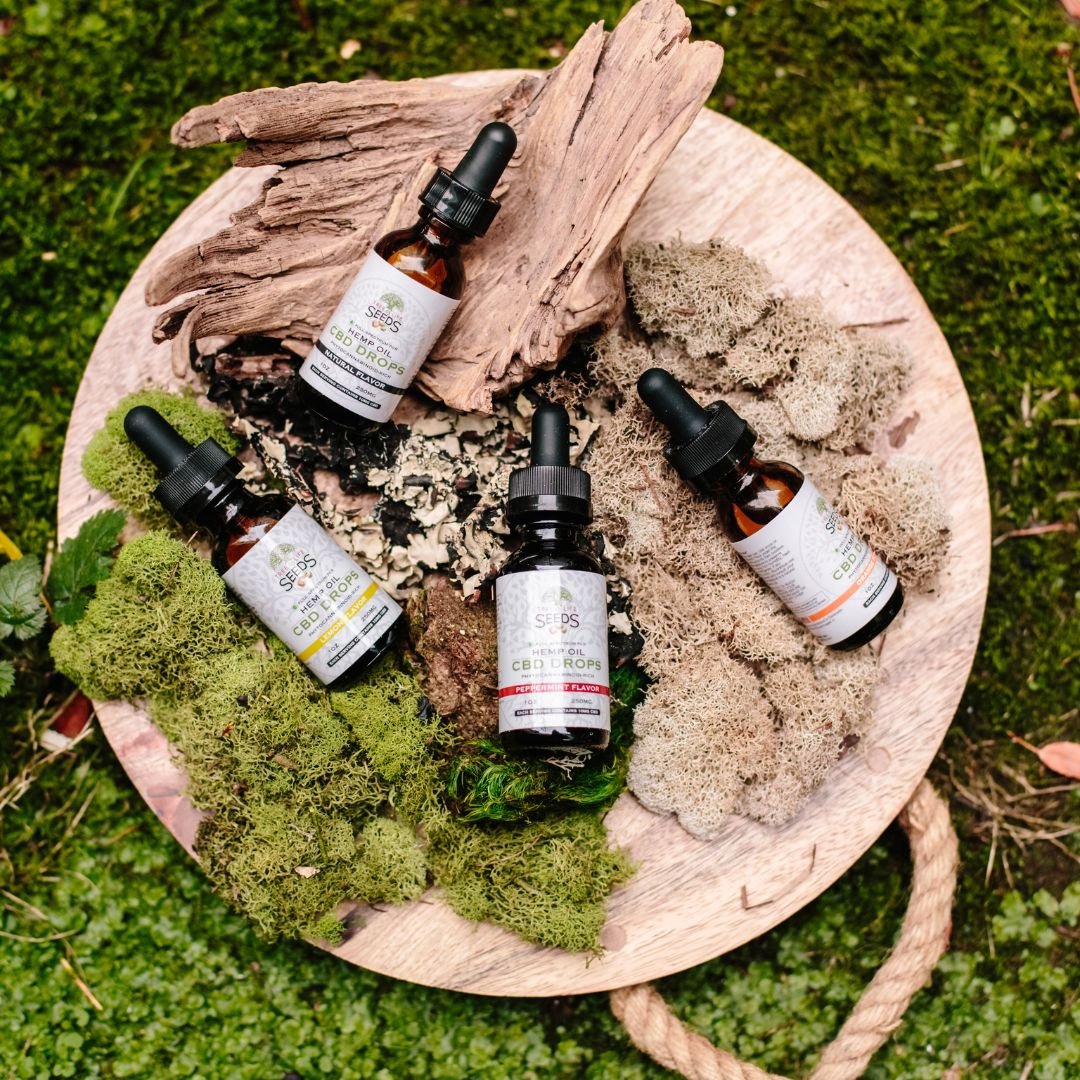What is CBD & What Does it Do?
CBD, or cannabidiol, has gained significant attention in recent years for its potential therapeutic properties. As more people seek natural alternatives to support their well-being, understanding what CBD is and what it does becomes increasingly important.
In this blog post, we’ll explore the fundamentals of CBD to help consumers make more informed purchasing decisions. We’ll answer:
What is CBD?
CBD is short for cannabidiol and is a naturally occurring compound found in the cannabis sativa plant. It is one of the many cannabinoids present in the plant, along with THC (tetrahydrocannabinol). However, unlike THC, CBD does not produce psychoactive effects or induce a “high.” CBD is typically extracted from hemp plants, which contain lower levels of THC compared to cannabis plants.
The CBD compound possesses various properties that make it rather intriguing. It is known to have anti-inflammatory, analgesic (pain-relieving), and anxiolytic (anti-anxiety) effects. Furthermore, CBD interacts with the body’s endocannabinoid system (ECS), a complex network of receptors and neurotransmitters involved in regulating various bodily functions.
What Does CBD Do?
CBD interacts with the endocannabinoid system by binding to cannabinoid receptors (known as CB1 and CB2 receptors) found throughout the body. However, CBD’s interaction with the ECS is more complex than simply binding to these receptors. It influences the release of neurotransmitters, modulates receptor activity, and affects the overall balance of the endocannabinoid system.
Research suggests that CBD may have a wide range of potential benefits. It has been specifically studied for its effects on conditions such as chronic pain, epilepsy, anxiety disorders, sleep disturbances, and inflammation. While more research is needed to fully understand the mechanisms and efficacy of CBD, preliminary studies and anecdotal evidence have shown promising results.
Does CBD Get You High?
One of the most common misconceptions about CBD is whether it produces a high like THC. CBD by itself does not cause intoxication or alter one’s state of mind. The psychoactive effects commonly associated with cannabis use are primarily attributed to THC. CBD products derived from hemp plants contain only trace amounts of THC (0.3% or less by law), which is not enough to produce psychoactive effects.
When consuming CBD, it is important to note that some individuals may experience mild side effects. These include:
- Dry mouth
- Drowsiness
- Changes in appetite
- Diarrhea
However, these side effects are generally mild and well-tolerated among most consumers. It is always advisable to start with a low dosage and consult with a healthcare professional before incorporating CBD into your routine, especially if you are taking other medications.
How Long Does CBD Stay in Your System?
The duration that CBD remains detectable in the body varies depending on several factors, including the method of consumption, dosage, frequency of use, and individual metabolism. Generally, CBD has a half-life of 18 – 32 hours, meaning it takes around five to seven days for it to be completely eliminated from the body. However, it’s important to note that even after CBD is no longer detectable in the body, its effects may still linger.
What is CBD Used For?
CBD has gained popularity due to its potential therapeutic applications for several medical disorders. Here are some of the most common uses for CBD today:
- Pain Management: CBD’s anti-inflammatory properties make it a potential option for managing chronic pain, arthritis, and migraines.
- Anxiety & Stress Relief: The CBD compound may help reduce anxiety and promote a sense of calm. It has been studied for its potential as a natural remedy for generalized anxiety disorder, social anxiety disorder, and post-traumatic stress disorder (PTSD).
- Sleep Improvement: Many individuals use CBD to promote better sleep by reducing insomnia, improving sleep quality, and alleviating sympoms of sleep disorders.
- Epilepsy & Seizure Disorders: CBD has received FDA approval for the treatment of certain epilepsy syndromes, such as Dravet syndrome and Lennox-Gastaut syndrome.
- Skincare: CBD-infused topicals are becoming popular for their potential benefits in managing skin conditions such as acne, eczema, and psoriasis.
- Overall Wellness: Some individuals incorporate CBD into their daily routine to support general well-being, manage stress, and promote a healthy lifestyle.
Where to Buy CBD in Vermont?
CBD is a fascinating compound that offers many potential therapeutic benefits without the psychoactive effects associated with THC. It interacts with the body’s endocannabinoid system, influencing various bodily functions and potentially providing relief for conditions like pain, anxiety, and sleep disorders. When choosing CBD products, it’s essential to ensure their quality and consult with a healthcare professional if needed.
If you’re in Vermont and looking to purchase high-quality CBD products, don’t hesitate to visit Mountain Girl Cannabis in Rutland, VT. At our recreational dispensary, you’ll find a wide range of CBD products, including tinctures, capsules, topicals, edibles, and more. Our knowledgeable wellness guides can assist in helping you select the right CBD products based on your specific needs and preferences. Explore a variety of CBD products and embark on a journey toward natural well-being by visiting Mountain Girl Cannabis in Rutland, VT today!







